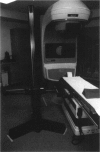Abstract
The objective of this article is to evaluate single-fraction or fractionated stereotactic radiotherapy of central nervous system (CNS) and head and neck lesions using intensity-modulated radiotherapy (IMRT) with a commercially available system (Peacock™, Nomos Corporation, Sewickley, PA). This system allows tomotherapeutic delivery of intensity-modulated radiation, that is, the slice-by-slice treatment of the volume of interest with an intensity-modulated beam, making the delivery of highly conformal radiation to the target possible in both single or multiple fractions mode. During an 18-month period, 43 (21 males and 22 females) patients were treated, using a removable cranial screw-fixation device. Ages ranged from 10 to 77 years (mean, 52.2; median, 53.5). Intra- and extra-axial lesions, including head and neck malignancies and spine metastases, were treated. Clinical target volume ranged from 0.77 to 195 cm3 (mean, 47.8; median, 29.90). The dose distribution was normalized to the maximum and was prescribed, in most cases, at the 80% or 90% isodose line (range, 65 to 96%; median, 85%; mean, 83.4%) and ranged from 14 to 80 Gy (mean, 48; median, 50). The number of fractions ranged from 1 to 40 (mean, 23; median, 25). In all but one patient, 90% of the prescription isodose line covered 100% of the clinical target volume. The heterogeneity index (the ratio between the maximum radiation dose and the prescribed dose) ranged between 1.0 and 1.50, whereas the conformity index (the ratio between the volume encompassed by the prescription isodose line and the clinical target volume) ranged between 1.0 and 4.5. There were no complications related to the radiation treatment. With a median follow-up of 6 months, more than 70% of our patients showed decreased lesion size. Stereotactic IMRT of CNS and head and neck lesions can be delivered safely and accurately. The Peacock system delivers stereotactic radiation in single or multiple fractions and has no volume limitations. It has been used to treat intracranial, head and neck, and spinal lesions. The option of fractionation, the lack of volume constraint, and the capability of treating intracranial, head and neck, and spinal pathology make stereotactic IMRT a valuable adjunct to established stereotactic radiotherapy systems delivering convergent-beam irradiation using the Linac or Gamma Knife. In a clinical setting that offers Linac, Gamma Knife radiosurgery, and conformal stereotactic radiotherapy, the latter may have advantages for treating large (> 25-cm3) and irregular lesions, especially when fractionation is considered useful.
Keywords: Intensity-modulated radiotherapy, intracranial lesions, linear accelerator, stereotactic radiotherapy
Full text
PDF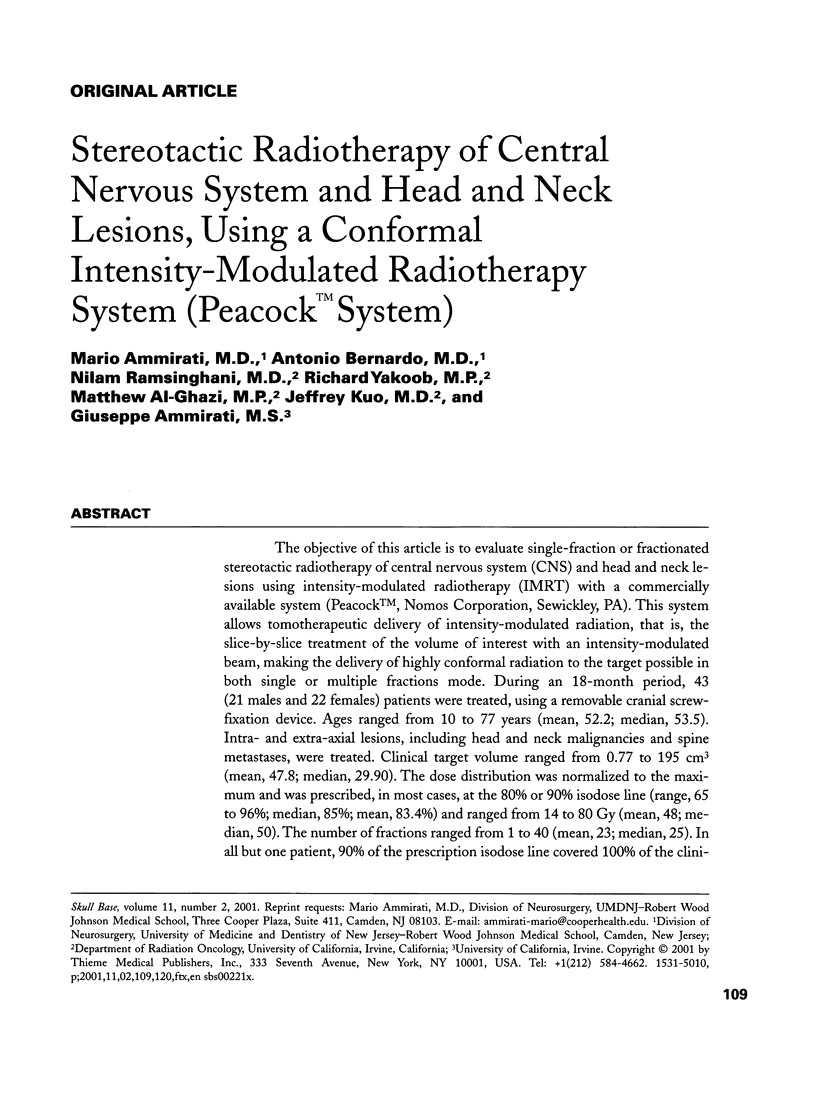
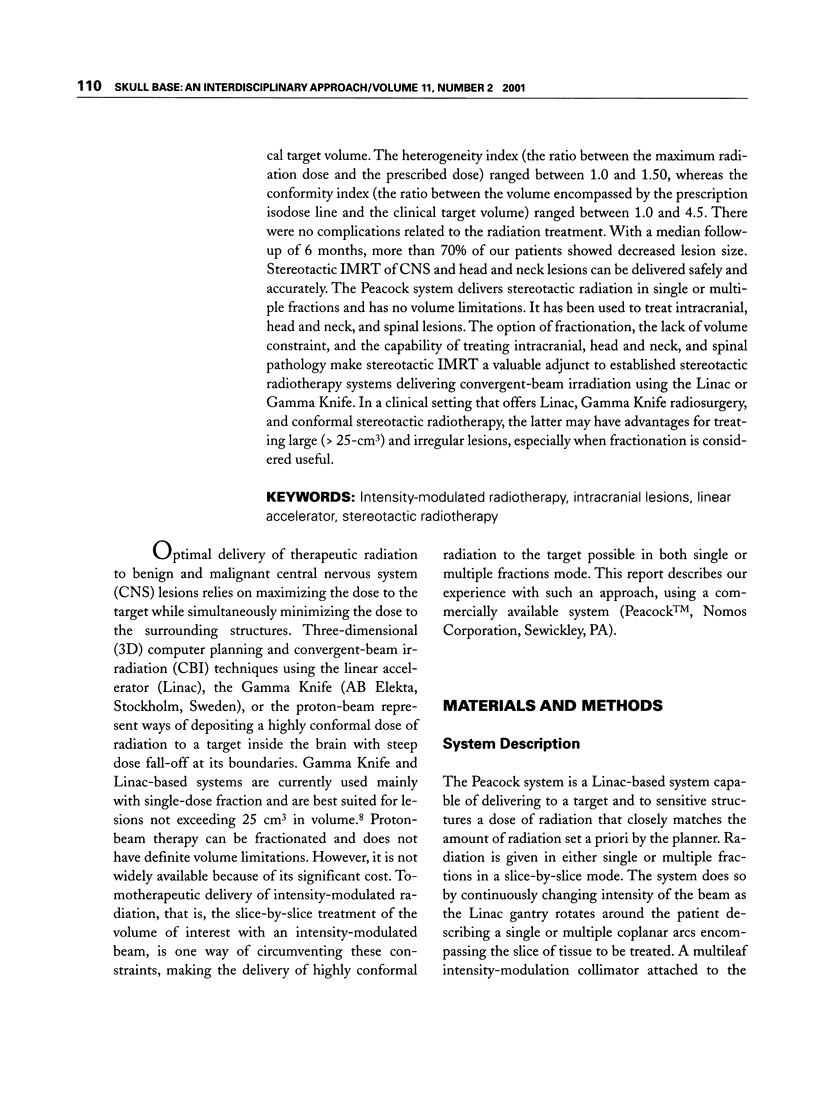
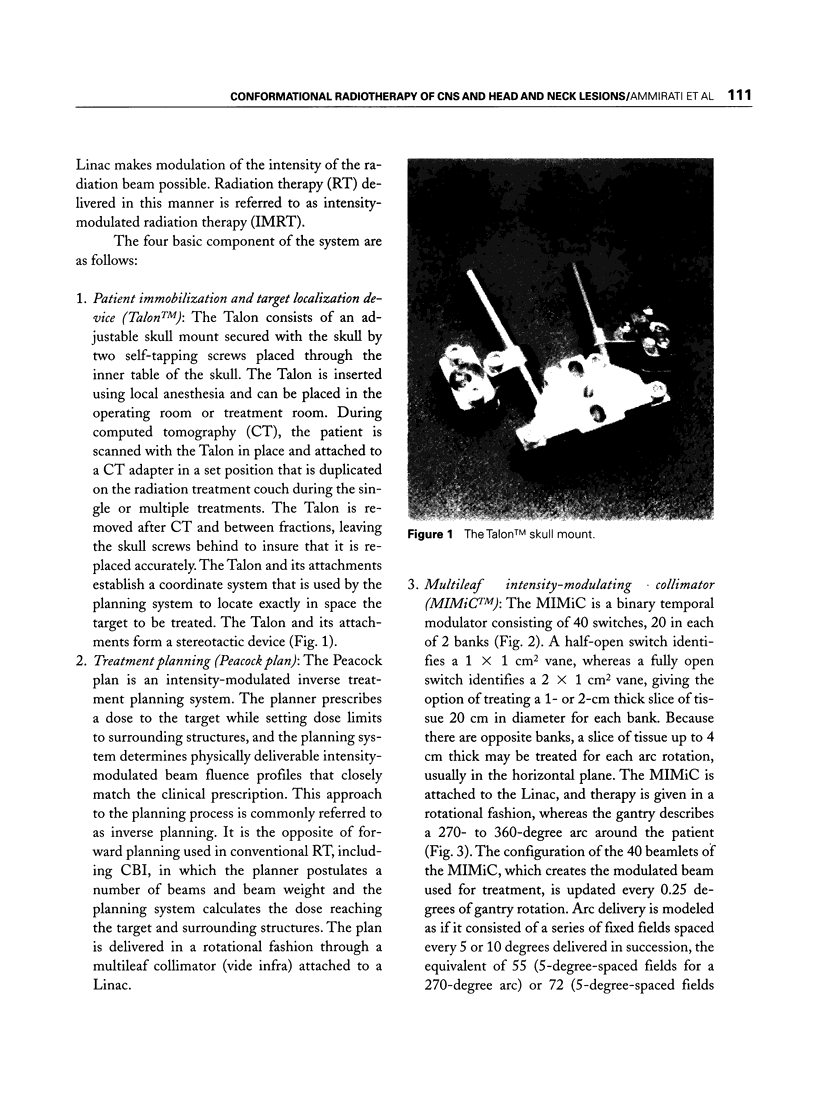
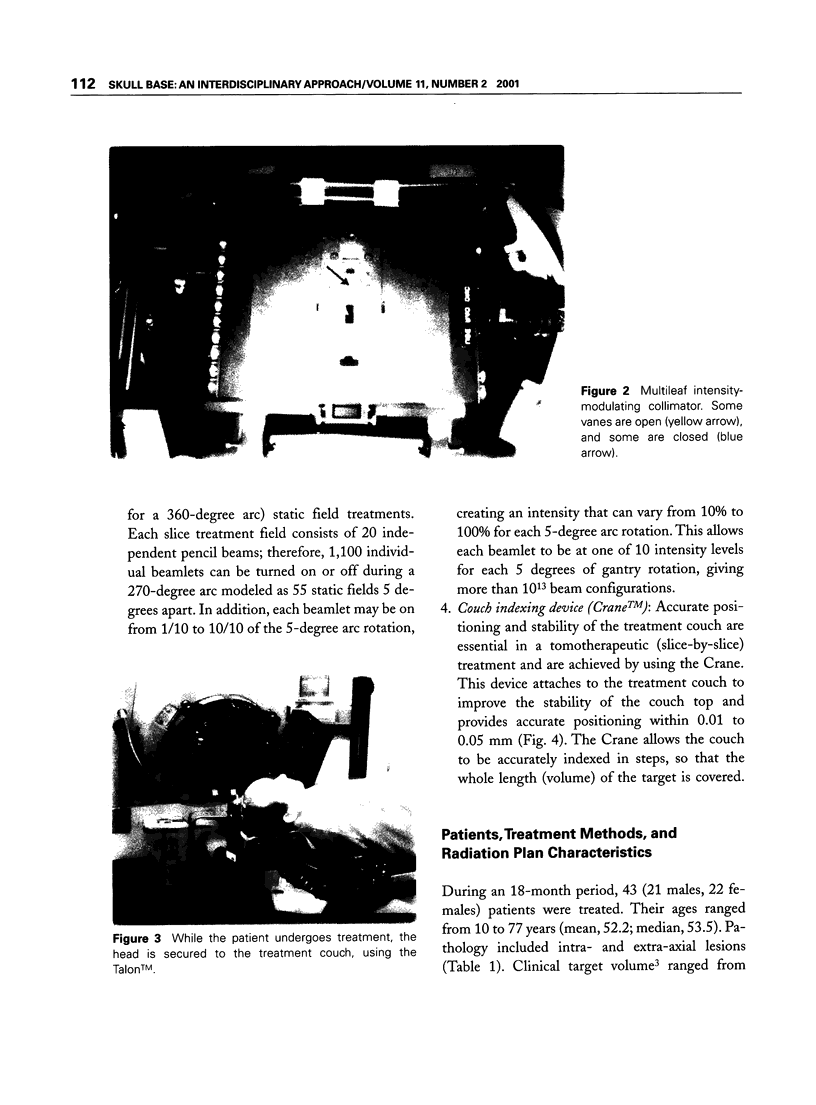
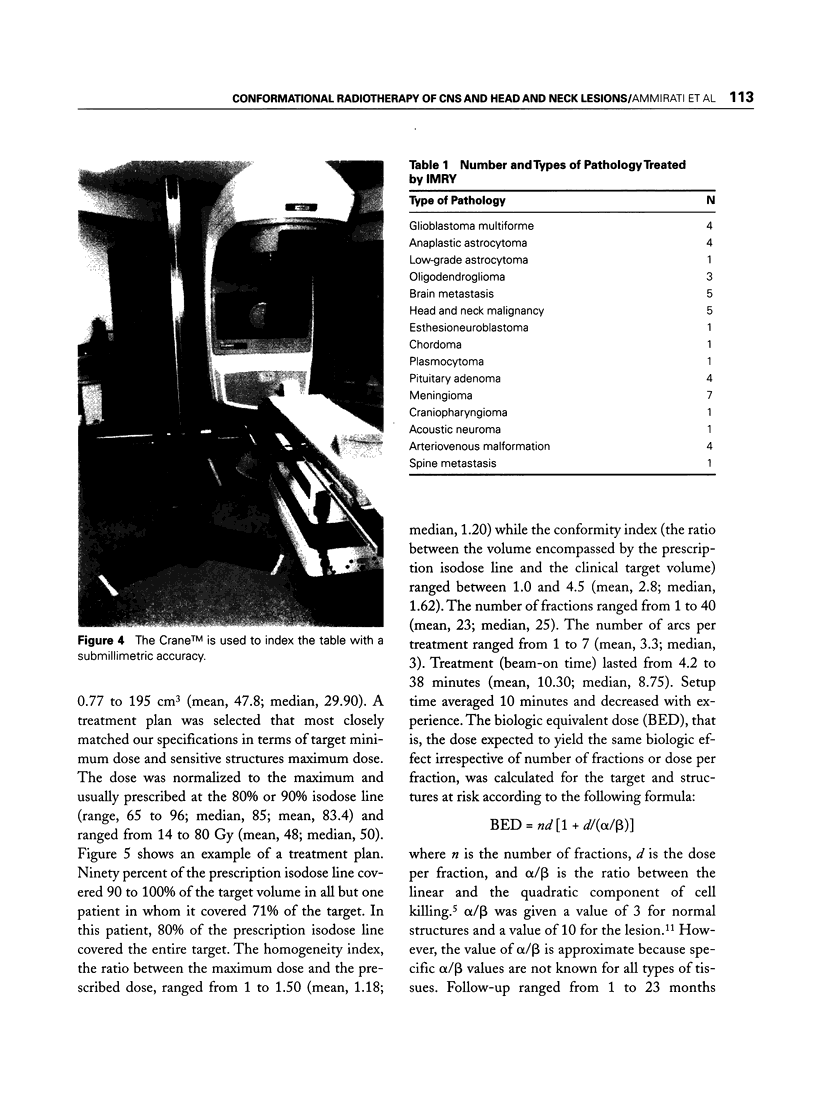
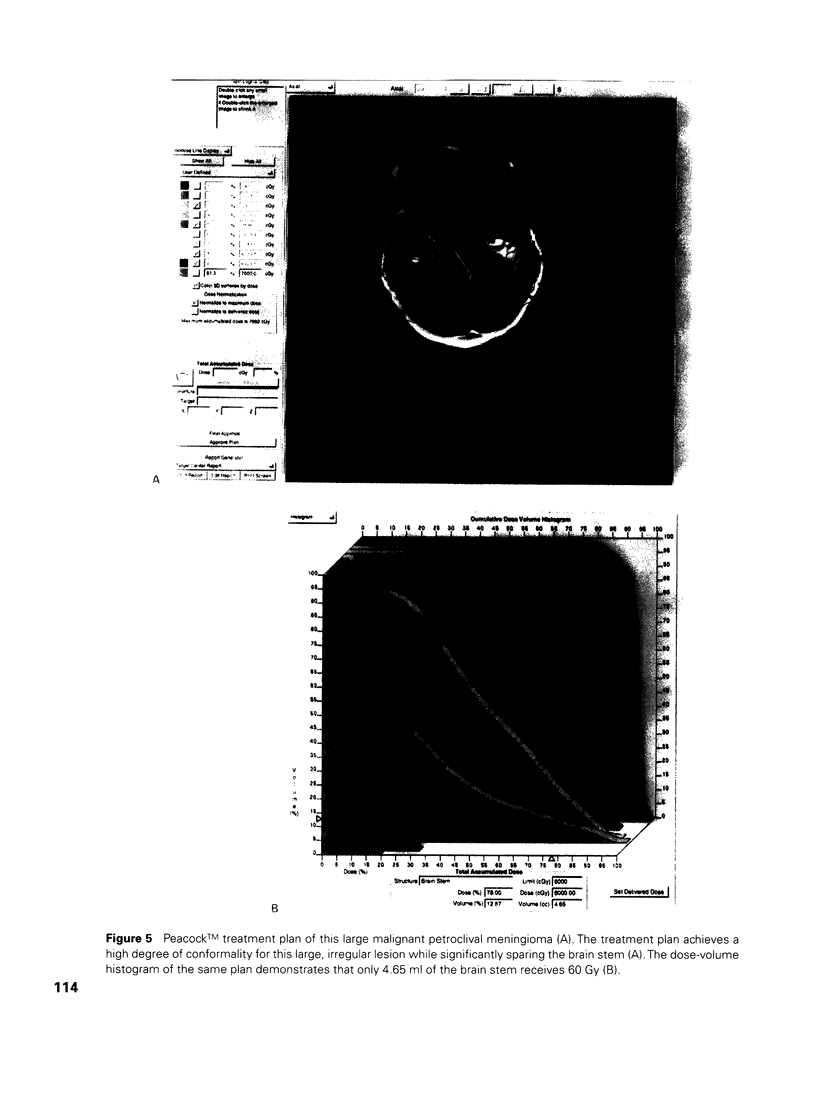
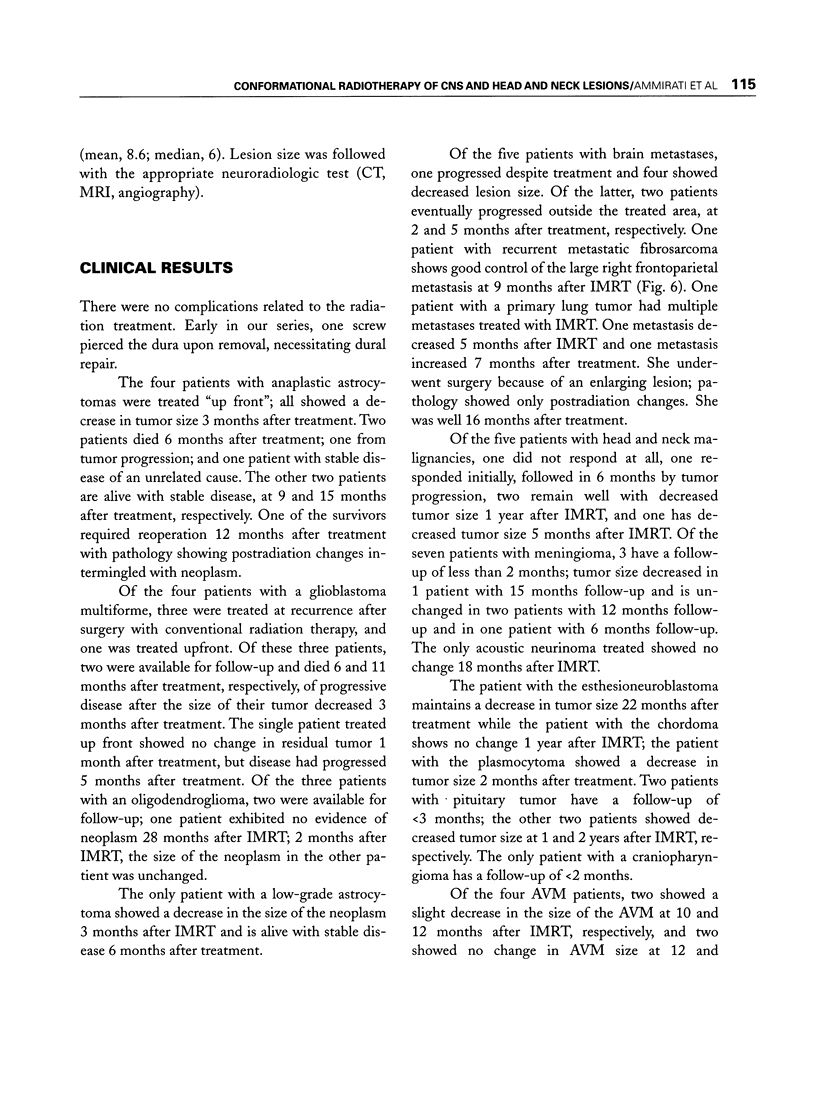
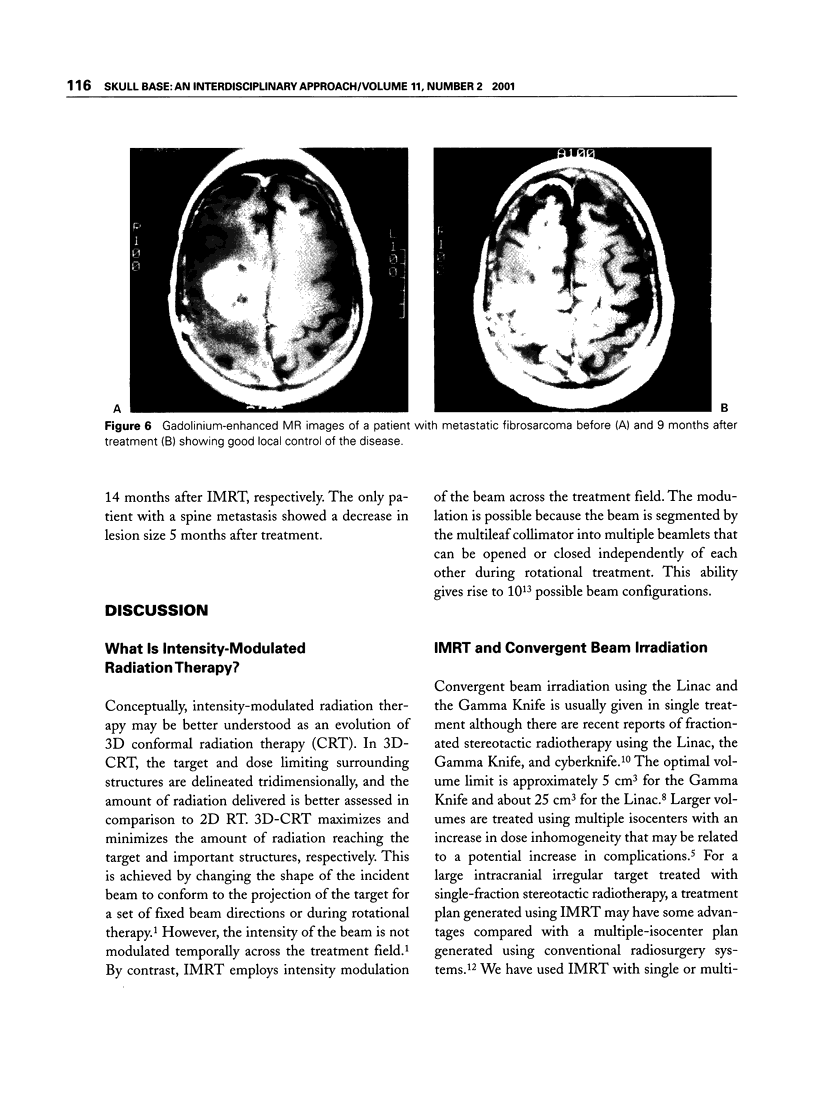
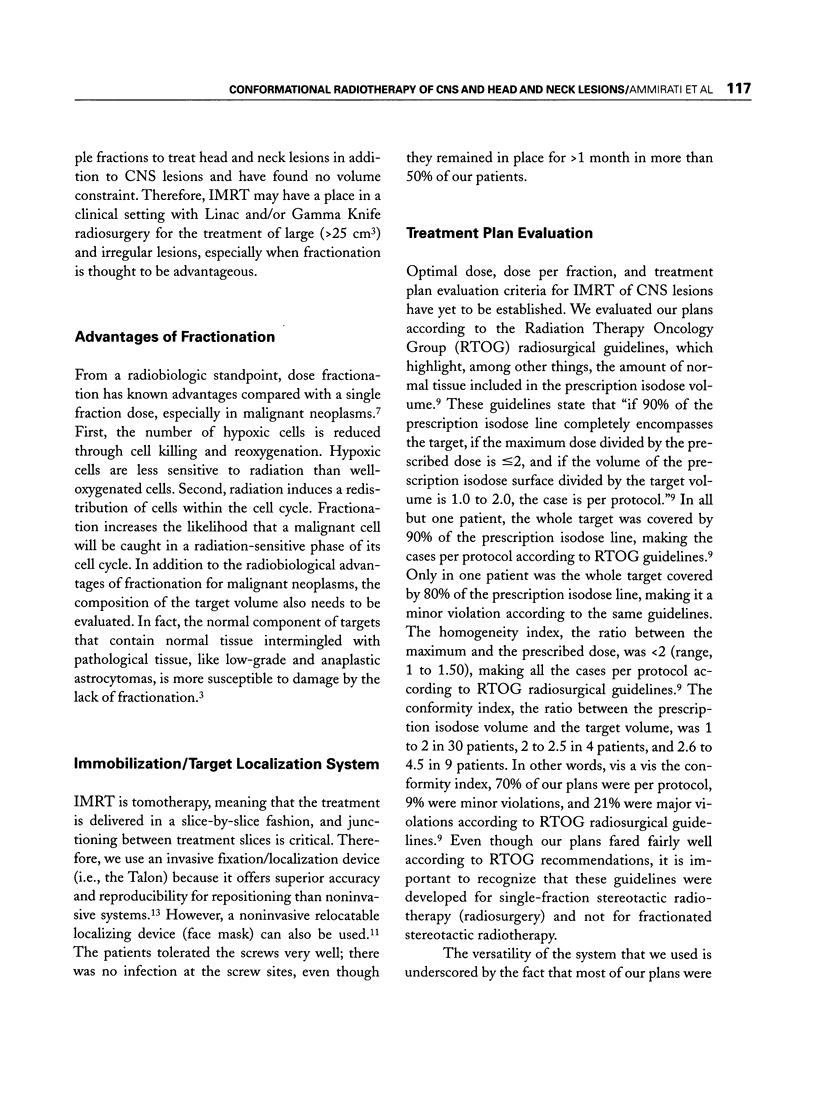
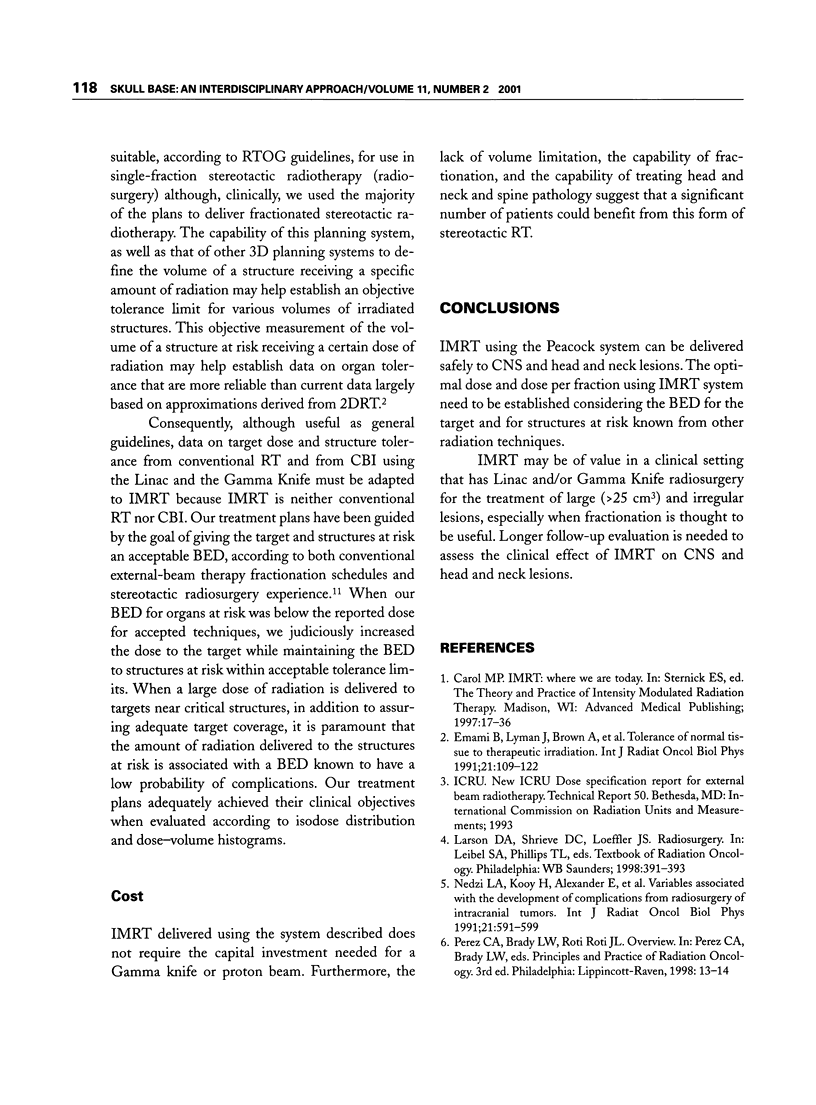

Images in this article
Selected References
These references are in PubMed. This may not be the complete list of references from this article.
- Emami B., Lyman J., Brown A., Coia L., Goitein M., Munzenrider J. E., Shank B., Solin L. J., Wesson M. Tolerance of normal tissue to therapeutic irradiation. Int J Radiat Oncol Biol Phys. 1991 May 15;21(1):109–122. doi: 10.1016/0360-3016(91)90171-y. [DOI] [PubMed] [Google Scholar]
- Nedzi L. A., Kooy H., Alexander E., 3rd, Gelman R. S., Loeffler J. S. Variables associated with the development of complications from radiosurgery of intracranial tumors. Int J Radiat Oncol Biol Phys. 1991 Aug;21(3):591–599. doi: 10.1016/0360-3016(91)90675-t. [DOI] [PubMed] [Google Scholar]
- Phillips M. H., Stelzer K. J., Griffin T. W., Mayberg M. R., Winn H. R. Stereotactic radiosurgery: a review and comparison of methods. J Clin Oncol. 1994 May;12(5):1085–1099. doi: 10.1200/JCO.1994.12.5.1085. [DOI] [PubMed] [Google Scholar]
- Shaw E., Kline R., Gillin M., Souhami L., Hirschfeld A., Dinapoli R., Martin L. Radiation Therapy Oncology Group: radiosurgery quality assurance guidelines. Int J Radiat Oncol Biol Phys. 1993 Dec 1;27(5):1231–1239. doi: 10.1016/0360-3016(93)90548-a. [DOI] [PubMed] [Google Scholar]
- Woo S. Y., Grant W. H., 3rd, Bellezza D., Grossman R., Gildenberg P., Carpentar L. S., Carol M., Butler E. B. A comparison of intensity modulated conformal therapy with a conventional external beam stereotactic radiosurgery system for the treatment of single and multiple intracranial lesions. Int J Radiat Oncol Biol Phys. 1996 Jun 1;35(3):593–597. doi: 10.1016/s0360-3016(96)80023-x. [DOI] [PubMed] [Google Scholar]






